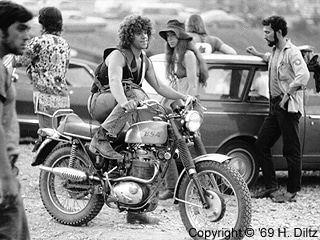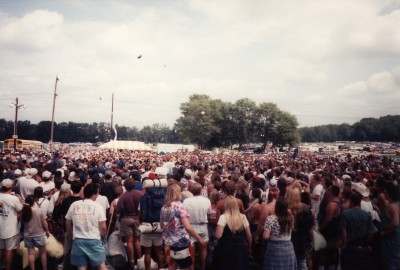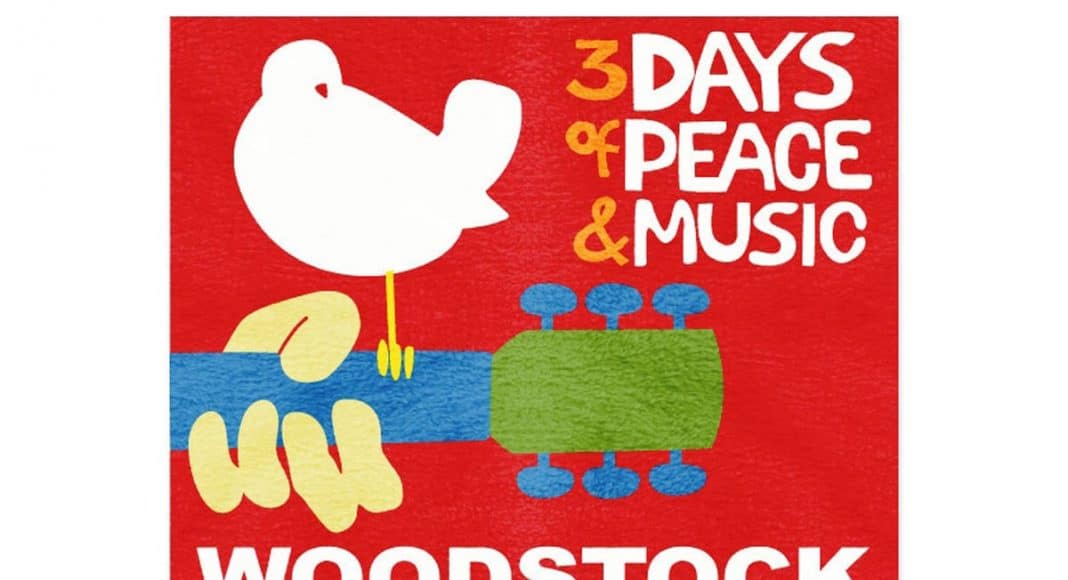It’s early for a Saturday in Seattle, but I’m German and so I am the first to arrive. Entering the swanky lobby of the downtown boutique hotel, the vibe is New York City chic, appropriate enough for my introduction to New Yorker Michael Lang – the once and still cherubic face behind Woodstock.
Michael is making the rounds of the cannabis business community, looking for partners for Woodstock-branded weed, and a mutual friend has arranged for us to have coffee. It is our first meeting, and I’m happy to speak with a generational icon. What I notice first is his smile – still boyish despite 72 years as a celebrity rock promoter – followed quickly by his still impressive head of hair. I am reminded of the famous photos, Lang on stage, or riding his BSA Victor motorcycle.

While I’m too young to have partied in the mud at Max Yasgur’s farm in upstate New York, the album, the Warner Brothers concert film, and the iconic photographs of the event were deeply influential to me growing up, and I tell him so. There is no brand that resonates more solidly with baby boomers than Woodstock.
Unlike the appeal of Snoop Dogg, Willie Nelson and Tommy Chong – the Holy Trinity of celebrity cannabis brands –Woodstock’s cache transcends mere celebrity. Not just an historical festival featuring all the hippie heavyweights, Woodstock was the first gathering of the rainbow nation. An “Aquarian Exposition,” a happening, and a coming-out party for America’s disenfranchised long hairs, who came together from all corners of the country to let their freak flags fly during 3 days of peace, music & pot smoke.
Woodstock branded weed is a no brainer – it is hard to imagine a brand with a more canna-friendly image, and initial consumer demand is likely to be high, particularly with the hoopla surrounding the planned 50th anniversary concert in 2019.
- RELATED STORY: Everything You Need To Know About Marijuana Today
I was part of the 1994 Woodstock II celebration. Spin magazine, where I served as associate publisher, was media sponsor, and we rented a large house next to the festival grounds. We used our sponsorship as an occasion to demonstrate to our advertising partners the power of music and youth culture. Woodstock was nostalgic even in 1994, and its mystique had less to do with the music of Jimi Hendrix and Country Joe than it did with the power of community. That experience transcends generations. The masses of Generation X celebrants, covered in mud, crowd surfing and smoking pot to Metallica we felt the same spirit of tribal communion as the 1969 crowd did, and the photographs of both are almost indistinguishable.

The Woodstock Nation is now in its 70s, and the quaint marijuana of the 1960s has grown up into a sophisticated consumer marketplace. Today’s cannabis comes in all shapes and sizes, flavors and forms. Competing with a supermarket full of canna brands for shelf space and consumer mind share won’t be easy – even for an iconic brand.
Woodstock will likely feature old school strains, and Lang is leaning toward classic ’60s strains like Panama Red and Acapulco Gold. His task now is to find local farmers in each market whose product can live up to expectations for such a legendary brand. To succeed he must create consistent experience worthy of such a pedigreed name, a challenge made more difficult as each state will have its own growers, who’ll operate under unique rules and standards.
Uneven production can quickly diminish the value of an entire franchise. Other licensees have seen that when you rely on third party producers, product quality and potency can be inconsistent from crop to crop, batch to batch, and certainly state to state.
Now more than ever, the key to success for cannabis producers and processors lies in brand differentiation, a topic I’ll be discussing at CannaCon on Friday, February 17th at 10am. We’ll be examining Marijuana Marketing, and how pot culture is quickly becoming pop culture.
For more cannabis business coverage, visit the MJ News Network.
More stories
[soliloquy id=”24090″]


